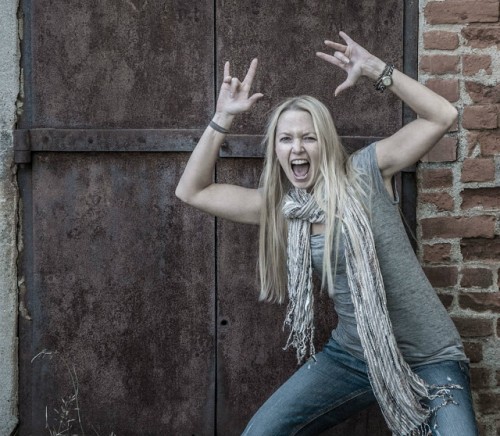I admit that during the few times I watched the Kardashians’ reality-show there was something about Bruce Jenner that made me feel uncomfortable.
It was the same feeling I got when I watched Michael Jackson interviews—there was something a bit inauthentic.
Now that Bruce Jenner has come out as transgendered, it’s all starting to make sense.
And, I’m reflecting on my judgements of Bruce, MJ, and everyone else that alters their body through plastic surgery or other means to help them reconcile how they feel on the inside with how they look on the outside.
The truth is that everyone is in the process of learning about themselves and how much they should share that learning with the outside world. It’s not as if I have been completely open about who I am and what I believe in my life.
I admit it. I have been very inauthentic at times and I’m still afraid to tell people around me how I feel and what I believe—especially about myself.
Bruce’s words from the interview come to mind,
”I don’t want to disappoint people.”
Yup, that hits home.
Wouldn’t it be just dandy if we could please everyone and still be able to express ourselves authentically?
Well, unfortunately, that’s impossible. That’s why I applaud Bruce for coming out as transgendered. Being from a middle-class suburban area of the USA, I didn’t grow up around any openly transgendered people.
That all changed this year when I spent five months in Thailand and the Philippines. It turns out our planet is teaming with transgendered people and I never even knew it.
Apparently, transgendered people are much more accepted in certain parts of southeast Asia. At first, I was very uncomfortable around all of them because it was new to me.
But then I started to appreciate them.
Now, when I see a transgendered person on the street dressed to the nines and walking proud, I see how brave and authentic she is.
Isn’t it so much harder to be comfortable with yourself when people seem to disagree with who you are?
Yet that’s what thousands of transgendered, gay and other minority people do every day when they say to the world:
“This is who I am, and I’m not apologizing.”
I’ve kept some things to myself for much of my life and when I tell you what they are, you will probably laugh. But the longer I keep them inside, the more I feel like I’m living a lie.
The first thing I’m going to “come out” about is that I am a genius.
I tried to explain this to my middle-school guidance counselor but he said that my test scores didn’t reflect that! Luckily, I never stopped believing in myself. I got a bachelor’s degree in two and half years.
Take that Mr. Johnson.
But seriously, the more I hide my brilliance, the more I feel stuck in unfulfilling jobs and situations. How much are you hiding your talents?
I am also going to come out and say that I am divine.
I’m not more divine than anyone else, but I’m no longer going to agree with people who believe human beings are evil or selfish. I’m a good person at heart and I know it. I don’t do perfect things all the time, but I really believe that my essence and everyone else’s is good.
I’m going to be more open about this.
In her book “Return To Love,” Marianne Williamson says that,
“Our deepest fear is not that we are inadequate; our deepest fear is that we are powerful beyond measure. We ask ourselves, who am I to be brilliant, gorgeous, talented, fabulous? Actually, who are you not to be? You are a child of God. Your playing small doesn’t serve the world.”
Have you ever felt like there was something you felt, believed or wanted to share about yourself, but there were so many perceived judgments from others that you kept it inside?
Perhaps you suppressed it and tried to forget about it, but it would always resurface, or even haunt you?
In what way are you living an inauthentic life? Is your job an authentic expression of who you are? Is the way you dress an authentic expression of who you are? Who are you trying to please? Who are you trying to not disappoint?
Are you ready to come out to the world?
Life, if it is well lived, is the process of becoming more and more authentic—more open about who we really are and what we really value.
As we become more aware of ourselves and share it with the outside world, it becomes a joy to be real and uninhibited.
There is nothing more rewarding than being authentic.
However, it can also be extremely difficult. Communicating your truth runs counter to a lot of social conditioning. This freedom of authenticity also comes at the cost of allowing others to judge us.
When it becomes too much effort to hide who you really are, here are some tips on how to communicate authenticity.
1. Notice when you are telling a lie to avoid sharing your authentic truth with others.
Example: Instead of telling clients that I am exhausted and I just don’t think I can give them my best, I will tell them that “something came up” and I can’t make the appointment.
Every time I avoid telling my truth, I feel the sting of inauthenticity within myself.
2. Disagree with people more.
Learn how to gracefully disagree with people.
How often do you agree with people—even bigots—because you want to avoid the discomfort of confrontation? Instead of nodding along to something you don’t really agree with, you could say,
“Everyone has a right to their opinion, and I totally respect your unique perspective. But I see it differently.”
My religious relatives will often assume that I have the exact same beliefs that they do.
My whole life, I’ve let them believe that. I’m building the courage to tell them:
“Actually, I don’t know what God is, and I’m learning to enjoy the mystery.”
You have a right to be you. You have a right to speak your truth even if it is part of your evolving learning-process.
3. Tell people how you feel when you feel it.
A friend might say a joke that offends you and in the past you might have laughed uncomfortably and tried to change the topic. In the mean time, you were suppressing your emotions, and it felt inauthentic.
Next time, you might say,
“I’m feeling angry/sad/uncomfortable as a reaction to that. You may not have meant for me to feel that way, but that’s the way I feel.”
In that situation, you are not blaming the other person. You’re not making any demands, although you could certainly make a request.
You’re just telling them how you feel, which gives them valuable information and allows you to avoid suppressing emotions.
4. Apologize less.
If you feel that you did something wrong, by all means, try to make amends.
However, if you are just expressing your truth, do not insult yourself by saying you are sorry about it. Stand up for your truth. Try saying,
“Although it may make some people uncomfortable, I really feel strongly that ______. It’s something I’ve thought a lot about and I know it’s a value that is close to my heart.”
Although keeping your authentic self inside helps you avoid a life of criticism and social awkwardness, it may cause you a lot of anxiety and suffering as well. I have found that the more I share my authentic self, the happier, less inhibited and stronger my relationships become.
As Williamson says,
“As we let our own light shine, we unconsciously give other people permission to do the same. As we’re liberated from our own fear, our presence automatically liberates others.”
Thank you, Bruce, for giving all of us the permission to share our authentic selves.
The millions of gay, transgendered, or other minorities that risk public ridicule, harassment, violence and family abandonment by expressing their authentic selves continue to inspire me to open up a bit more about who I am with the world.
So far, its always been worth the risk.
Relephant:
Wake Up Your Authentic Self.
Author: Sean Morgan
Apprentice Editor: Brandie Smith/Editor: Renée Picard
Photos: Terry Armstrong/Pixoto, Bog Dan/Pixoto










Read 0 comments and reply